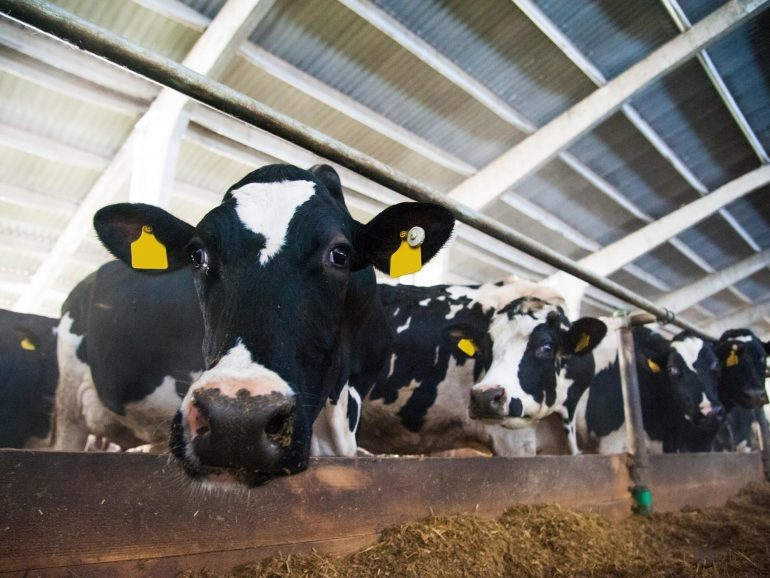The livestock sector in Europe has exceeded greenhouse gas emissions and biodiversity loss and must be reduced urgently, according to a major report.
Pressure on breeders is set to intensify as the world's population and rising incomes increase demand for meat-based products, beyond the limits and endurance of the planet.
Professor Allan Buckwell supports Greenpeace's call to halve meat and dairy production by 2050, and his report focuses on EU policy-making.
Former EU Environment Commissioner Janez Potocnik said: "If policy makers don't deal with it now, farmers will pay the price for their inaction."
The study calls on the European Commission to carry out an urgent formal inquiry with a view to proposing measures - including taxes and subsidies - to discourage animal products that are harmful to health, the climate or the environment.
Livestock production has the largest footprint in the world and is growing rapidly, with almost 80% of the planet's arable land now used for grazing and animal feed production, although meat yields only 18% of our calories.
Europeans are already consuming more than twice as much meat as dietitians recommend and far more than environmental limits, according to a study by the Rise database.
As a result, huge adjustments will be needed by 2050 to balance the sector, including a 74% reduction in greenhouse gas emissions and a 60% reduction in the use of nitrate-based fertilizers.
"We are talking about fewer meals with meat and moving to flexible diets. There is a role for milder public health messages, but tougher messages are also needed, "said the study's authors.
Buckwell told the Guardian that the goal is to shrink the sector by 40% -50%. "We need to reduce consumption by about half to be safe."
Such a transformation will not happen spontaneously, the study added. "It requires strong messages from the government, so the policy proposal should include measures to discourage the consumption of animal products that are harmful to public health and the environment."
The study condemns the recent reform of the EU's common agricultural policy, which ignores the growing call for steps towards more sustainable food systems.
Mr Phil Hogan, the EU's agriculture minister, who rejected the industry's record earlier this year, said he also wanted to make the sector "smarter, greener and cleaner and do it so quickly".
One of the biggest obstacles to this sustainable food vision is Europe's own farmers.
Liam MacHale, general secretary of the Irish Farmers' Association, told the Guardian that farmers were "an easy target" for environmentalists.
"Don't focus on our sector," he warned the authors of the report, adding that they need to work on the transport sector.
